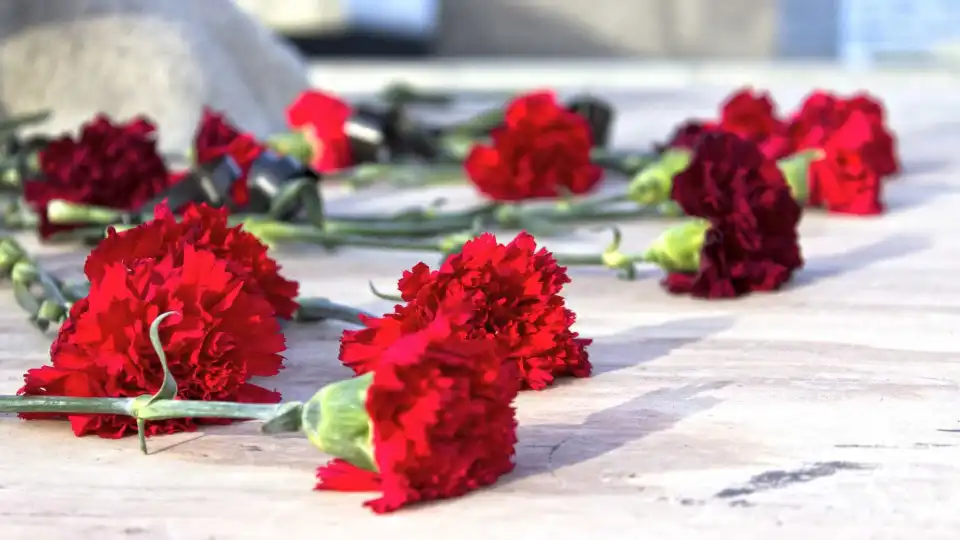Historians reject PCP military involvement on November 25
Historians José Pacheco Pereira, Jaime Nogueira Pinto and Irene Pimentel today rejected the idea that November 25th had the military involvement of the PCP, stressing that the party did not intend to create a "Cuba in Europe".

© iStock

País 25 de Abril
In a debate about November 25, 1975, organized by the organizing committee of the commemorations of the 50th anniversary of April 25, at the Rectory of the University of Lisbon, historian José Pacheco Pereira, who wrote a biography about Álvaro Cunhal, stressed that the former secretary-general of the PCP was "afraid of excesses" and his attitude was always guided by "great prudence".
"He has a typical attitude in the PCP: he has one foot in and one foot out. He has one foot in, to see what comes of it, and one foot out, because he distrusts the success of the most left-wing attempts on November 25", he stressed.
Pacheco Pereira mentioned that, in an intervention before the Central Committee of the PCP in August 1975, whose content is not fully known, Cunhal defined what the party's position should be in a "very difficult" context, in which its "headquarters and militants were attacked in many parts of the country" and, at the same time, there was "left-wing pressure in the streets".
"It was the tactic of the 'ronha', that is, in the face of what was happening, the PCP should be extremely prudent and use a peasant idea of distrusting everything and everyone, and of keeping everything with great prudence", he said.
Pacheco Pereira also mentioned that, at that time, the International Department of the Communist Party of the Soviet Union - successor to the Comintern - did not intend to create a "Cuba in Europe" in Portugal, after an analysis it had made, following the 1973 military coup that overthrew the Chilean government of Popular Unity led by Salvador Allende, that it had gone "too far" in Chile.
"The Soviet Union did not look favorably on Portugal becoming a kind of proto-Cuban regime in Europe", he said, adding that Cunhal shared this opinion, despite believing that it was possible to go further than the Soviet Union understood.
According to Pacheco Pereira, the main intention of the PCP in 1975 was "essentially to maintain internal control, reserved, discreet, over the sectors that influenced the Armed Forces", because it believed that the "leftists were pushing the country into a situation in which they would be defeated".
"There is no evidence of any significant movement of the structures that the PCP had, even paramilitary, of participation in November 25, except for waiting to see what would happen", he stressed, adding that the only element that is used to allude to a possible involvement of the PCP is an interview of Álvaro Cunhal with journalist Oriana Fallaci that he considered to have been manipulated.
In turn, historian Jaime Nogueira Pinto addressed an analysis by American researcher Crane Brinton who considers that each revolution is marked by three phases: the time of the moderates, the terror and the 'thermidor'.
The 'thermidor' "is a moment when the Revolution has no strength to move forward, but the reaction also has no strength to go back, that is, to make a counterrevolution. And November 25 is, in a way, that point", he said, adding that it was a date that had "external influence", which also dictated the behavior of some actors, particularly the PCP.
"The Soviet Union was certainly not interested in having here a kind of Cuba that would stop any possibility of transition in Spain and I admit that the leaders, the elites, the senior cadres of the party, had this vision, but it does not mean that the militants had it too", he said.
Historian Irene Flunser Pimentel argued that "November 25 was not a coup d'état by the PCP" and, therefore, it is also not "a counter-coup or a counterrevolution to eliminate the PCP", stressing that the date is inseparable from a cleavage that existed within the Armed Forces Movement (MFA) between the Group of Nine, the COPCON group and the Gonçalvists group.
"What happened was that, with November 25, there were MFA structures that disappeared (...) and perhaps one of the objectives of November 25 was probably to end those structures, where the Gonçalvists and others would be", she said.
On November 25, 1975, about a thousand paratroopers from the Tancos School Base occupied the Monsanto Air Region Command and six air bases, an act that the Group of Nine - a group of military from the moderate wing of the Armed Forces Movement - considered an indication that a coup d'état by the so-called military left could be in preparation.
The attempt at uprising by those military units, associated with far-left sectors, was stopped by a device based on the Amadora commando regiment, under the direction of then Lieutenant-Colonel Ramalho Eanes, future President of the Republic.
At the end of the afternoon, the then President of the Republic, Francisco da Costa Gomes, decreed a state of siege in the Lisbon region, and the situation was controlled by the military members of the Group of Nine in the MFA.
The events of November 25, 1975 had several versions over the decades and caused divisions about the responsibilities of each of the actors and about who took the first step.
Read Also: Historian criticizes "incomprehensible attitude" of PS about November 25 (Portuguese version)

Descarregue a nossa App gratuita.
Oitavo ano consecutivo Escolha do Consumidor para Imprensa Online e eleito o produto do ano 2024.
* Estudo da e Netsonda, nov. e dez. 2023 produtodoano- pt.com



